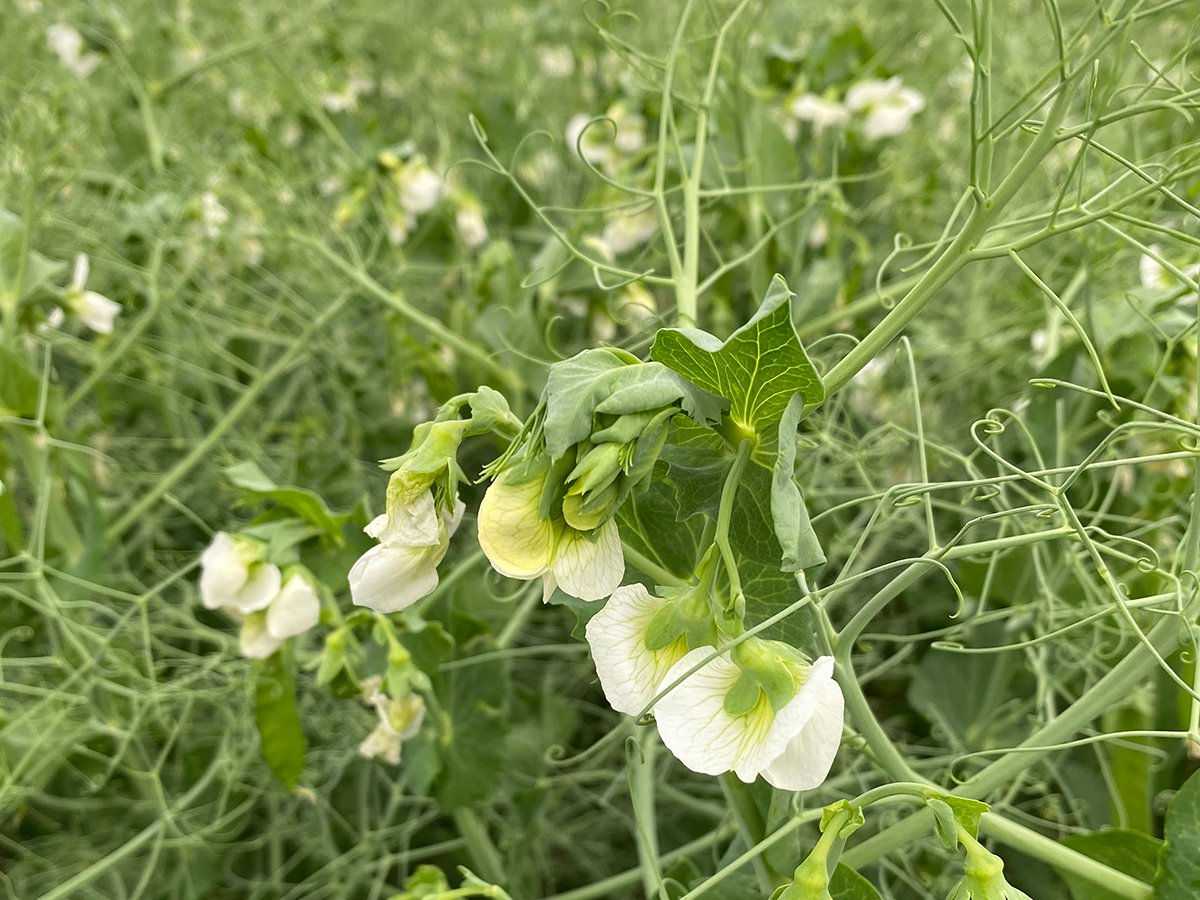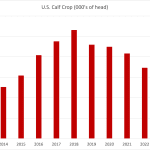Agricultural trade between Canada and the United States has blossomed since the implementation of the North American Free Trade Agreement and is showing no signs of wilting.
Canada is forecast to be both the largest consumer of American agricultural commodities and the largest supplier of foreign goods to that market in fiscal 2008, according to the Outlook for U.S. Agricultural Trade report prepared by the U.S. Department of Agriculture.
Exports to Canada are forecast to reach a record $15.8 billion US in 2008, up $2.6 billion from 2007, because of higher sales of meat, dairy products, soy oil, corn and horticultural products, extending a 15-year pattern of impressive increases.
Read Also

Pulse fractionation business expected to soon get a boost
Louis Dreyfus Company will soon be producing pea protein isolate at its new plant under construction in Yorkton
“It’s surprising to us how rapid and long that growth has been,” said Ernest Carter, senior economist with the USDA and one of the authors of the report.
“We’re sort of just wondering how much can these Canadians consume?”
He said it is rare to see such sustained growth from a mature economy. Rising sales to Mexico make more sense because as income levels rise in that country, poor people will logically spend more on food.
Canada and Mexico combined are expected to buy $30.5 billion of agricultural products from the U.S. in 2008, $5 billion above fiscal 2007 levels.
The agency is using the success of NAFTA to push the U.S. Congress to move forward on similar free trade agreements with other regions of the world.
“Canada and Mexico, our two North American Free Trade Agreement partners, currently buy 28 percent of the value of America’s agricultural exports – up from 20 percent purchased 15 years ago when trade began under NAFTA,” said U.S. agriculture secretary Ed Schafer.
“Unfortunately, Congress has not been acting in the best interest of the American farmer and rancher by stalling approval of the signed trade agreement with Colombia.”
On the flipside of the ledger, Canada and Mexico are expected to account for 35 percent of U.S. agricultural imports in 2008, up from a 25 percent share in 1990.
The U.S. is forecast to import $17.6 billion worth of Canadian agricultural goods in 2008, up from the $14.7 billion purchased in fiscal 2007. Under that scenario, the U.S. will have a $1.5 billion agricultural trade deficit with Canada this year.
“Even as the Canadian dollar has appreciated significantly against the U.S. dollar – 38 percent since 2002 – U.S. import growth from Canada remained above 20 percent annually over the past 12 years,” the report noted.
Bill Kerr, an agricultural economist at the University of Saskatchewan who specializes in international trade, said it is hard to fathom why U.S. consumers continue to buy more Canadian agricultural goods when the cost of those items is ramping up.
“I just cannot imagine (sales) wouldn’t be showing some cooling off.”
He surmised that while the U.S. dollar has been losing ground against the Canadian dollar, it may be depreciating faster against other currencies, making exports from other countries even more expensive than Canada’s agricultural goods.
Carter chalked it up to another factor.
“With high disposable incomes the U.S. consumer is pretty insensitive to having to pay higher prices for foods.”
Some of the top Canadian products exported to the U.S. are snack foods, red meat, live animals, fruit and vegetables, vegetable oils, coarse grains and wheat.
Carter said much of the increase in the value of exports and imports can be attributed to higher food and commodity prices, but volumes are up as well.
He noted the NAFTA agreement came into effect at an opportune time. The U.S. had been overly reliant on the Japanese market for exports. But the Asian financial crisis of 1997 and a recession that gripped Japan for more than a decade caused that country to temporarily fall off the list of top export destinations.
“If we hadn’t had NAFTA in place and the resulting trade expansion that NAFTA brought us, worldwide exports would have collapsed,” said Carter.















